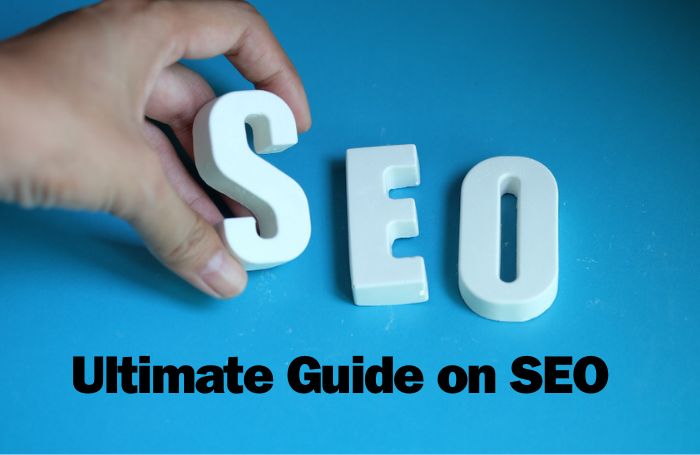
SEO – we hear it often, and we dread it the most. But, should we? After all, Google and the league of other search engines are here to help us scale better search engine rankings for our website. That is if we play by the rules of SEO and keep ourselves away from spamming.
Before we delve into the intricacies of SEO, let’s get this fact straight and clear. SEO is not difficult. It is easier than your elementary math. Just that, like anything that gives a great result, it is difficult, to begin with.
Especially if you are a B2B business owner who is banking on your website for maximum selling, the beginning is going to be the roughest.
But fear not. Here are some practical tips that will streamline your website performance and give you an upper hand in SEO ranking.
#1 Keywords Research
Keywords to search engines are like iron to a magnet. The closer the metal is to the magnet better is the attraction. In other words, if you get the right keywords with adequate density, there is a higher chance for the search engine to crawl your content. Ultimately, your website will sit on the top search engine results.
How to find the right keywords for your website?
There are two major steps to finding relevant keywords to your website. Keywords research and planning.
Keyword Research & Planning
Research is difficult (boring too). Unfortunately, there is no way out to find the right keywords that can bump your SEO ranking.
While doing keyword research makes sure you don’t fall for these common mistakes most beginners make:
- Picking keywords without any search volume
- Keywords with high competition
- Keywords that are relevant and related to your content (& business)
Google itself provides a free search-based keyword tool that will help you zero in on the right keywords for your B2B website. The website also gives a detailed view of real-time Google searches made by other users if you log into the website using your AdWords account.
Bank on Long-tail keywords for targeting specific customers.
Long-tail keywords are a better way to connect with customers who are specifically looking for something.
Let’s assume you want to search for how to compare pdf files. Naturally, you will give ‘compare pdf files’ as the search query.
Chances are that you will get results that are not exactly what you want. There will be many generic search results that may not point you in the right direction.
But, if you hit a long-tail keyword like “how to compare two pdf files “you have a fat chance of getting what exactly you want.
That’s the way Google and most other search engines work. They direct users exactly to those pages where the catchphrases as used by users are present.
Long story short: When using keywords pop in some long-tail keywords too. You will get more traffic and ultimately conversions to your B2B website too.
#2 Website Loading Time
Did you know? Website page loading speed is a critical search ranking factor. The speed performance of your website has directly proportional to user experience and search engine friendliness.
Faster the page loading speed better will be the search engine ranking and user experience.
Be informed that website loading speed is the first thing that will create a lasting impression on the visitor. At least 79% of customers have confirmed in a survey conducted by Akamai that they will not buy from an online store that has poor website performance.
Aim to keep your page loading speed as low as possible, at least less than 3 seconds as recommended by John Mueller, Google’s Webmaster Trends Analyst.
The entire Twitter feed can be seen here.
#3 Website Content
“Nobody reads adverts. People read what interests them. Sometimes it’s an ad.” ~ Anonymous
Your B2B website is undoubtedly a marketing medium. The more fetching it is, the better conversion rates will be. Great website content that drills down entire product features, capabilities, and support add more brownie points to your website performance.
Moreover, websites with several internal pages having long-form content are out of vogue. Seek websites with full-screen HQ images with great content copies are dominant today.
Pop in some high-worth keywords into the copy content and see traffic gushing into your website.
#4 URL Structure
URL (Uniform Resource Locator) is an address of your online content. Think of your home address where you can be found. Search engines use URLs as a pointer to help users land on appropriate pages where content related to their search queries is indexed.
So, forming a concrete URL structure that is search engine friendly is a must. It should relate to the content you are discussing and much have the relevant keywords that will attract search bots.
Moz came up with a handy cheat code that all website owners (including B2B businesses) can use for creating a search engine friendly URL:
When in doubt, follow these best practices to create URL structure:
- Stick to using only numbers or alphabets
- Avoid using characters like! @ # $ % ^, etc.
- Try to keep the URL as short as possible (They rank better)
- Use hyphens in between words. It will help bots crawl the URL better
#5 SSL Security
Believe it or not! SSL certificate is becoming a pioneer for all online websites. An SEO must have to consider this website security protocol if he/she wants to get a higher ranking in search engine. You can buy ssl certificate at cheapest price.
Moreover, Google is also encouraging HTTPS in full-fledged as the search engine authority disclosed a fact that a website with having SSL would have a higher chance of ranking in search engine.
A rising cybercrime and threats have made large organizations, CAB forums take a decision for HTTPS everywhere. Strong encryption will not let your data be sniffed by any other person and thus make the traveling information secure than ever before.
So if guys as an SEO, if you want to boost ranking, then SSL Certificate are an inevitable force that you should ponder.
Closing in
Website performance and SEO are two powerful tools to bait in more conversions. These impactful tips will help tweak your website performance and SEO process to finesse where bringing traffic will be a cakewalk.
The whole post, in short:
- Know what your target customers are looking for
- Use keywords that rank better towards your website
- Keep page loading speed as low as possible
What more? It is not just about SEO. Great content can win fans too. We know of websites where keyword optimization is not that great but enjoy a steady stream of traffic on a regular basis.
However, ignoring keyword planning may not serve your B2B business. A perfect balance of great content and keyword density will be a match made in heaven.












[…] viagra sildenafil 50mg tablets […]
[…] clomid prices […]
[…] sildenafil oral jelly 100mg […]
[…] cialis 5 […]
[…] sildenafil 50 mg for sale […]
[…] ginseng extract for men […]
[…] sildenafil 50 mg precio […]
[…] cialis to buy […]
[…] cialis tablets […]
[…] 50 mg sildenafil tablets […]
[…] sildenafil 25 mg coupon […]
[…] cialis pills for men […]